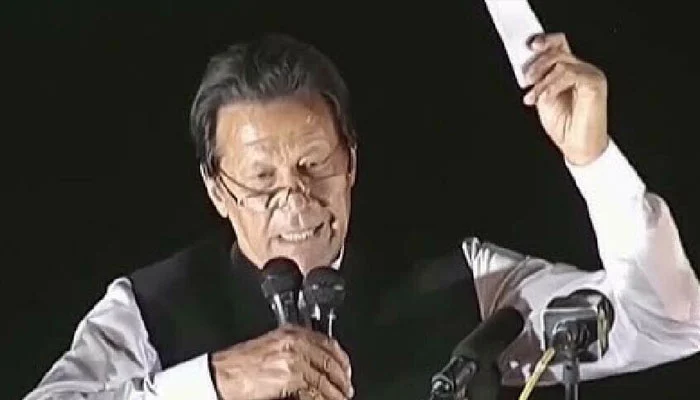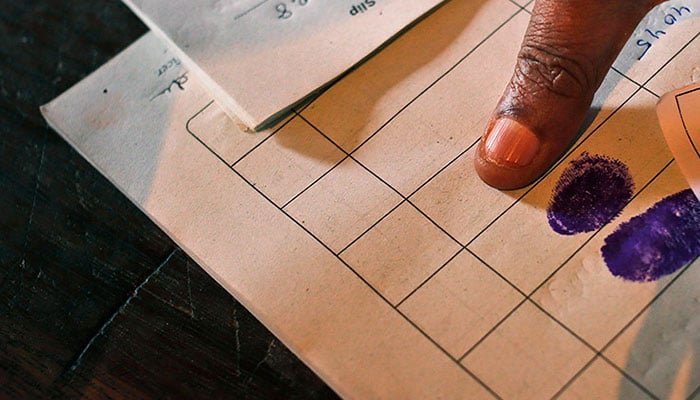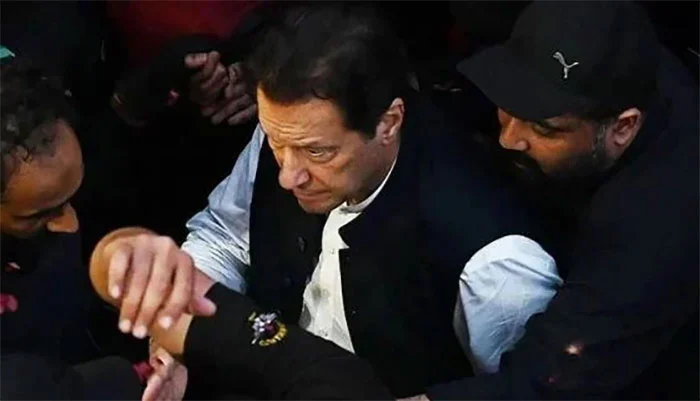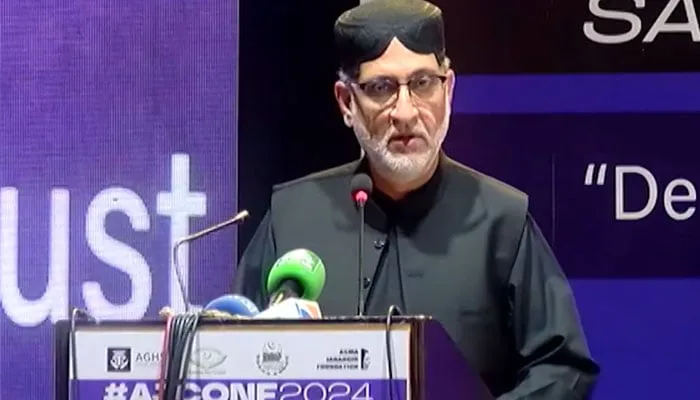In a surprising development, the Islamabad High Court has issued an order to halt the trial proceedings against Prime Minister Imran Khan in the Sword Case, raising eyebrows about the extraordinary circumstances surrounding the case. The decision, delivered by Justice Mian Gul Hasan, prompts a closer examination of the unusual conditions under which the trial is being conducted, particularly the manner in which the case has unfolded.
The Sword Case involves allegations against Prime Minister Imran Khan, accusing him of financial irregularities and seeking to scrutinize his assets. However, the proceedings have taken an unexpected turn as the court now restricts the trial by preventing key witnesses from testifying.
During the hearing, Justice Mian Gul Hasan and another member of the bench, Justice Orangzeb, expressed a keen interest in understanding the exceptional circumstances that led to the trial being conducted in this manner. They sought clarification on whether the case involved unique elements that warranted such a departure from normal legal proceedings.
The legal intricacies become more apparent when comparing this case to the ongoing trial of former Prime Minister Nawaz Sharif, who is currently facing charges in the Al-Azizia reference. In Sharif’s case, the trial was conducted openly, and media coverage was permitted. Similarly, in the case of Indira Gandhi, the former Prime Minister of India, the trial was held in Tihar Jail, but media coverage was allowed, highlighting the contrast with Imran Khan’s trial.
On a different legal front, the Islamabad Accountability Court, headed by Judge Muhammad Bashir, rejected the National Accountability Bureau’s (NAB) plea for the physical remand of Imran Khan in a separate scandal involving an alleged embezzlement of £190 million. The court’s decision to deny NAB’s request means that Imran Khan will not be held in custody for further investigation.
Following this rejection, the NAB investigative team is set to conduct an inquiry into the scandal while Imran Khan remains in Adiala Jail. This underscores the legal complexities surrounding the Prime Minister, who is simultaneously involved in various legal battles that range from financial irregularities to accusations related to his tenure as the head of government.
In response to the developments, Justice Mian Gul Hasan and Justice Orangzeb have raised questions about the unprecedented nature of the Sword Case trial. The judges inquired about the government’s justification for allowing certain individuals associated with the Khan family to avoid testifying in court. The Attorney General, representing the government, clarified that the federal cabinet had approved the trial’s proceedings, and the notification regarding the trial would be presented before the court.
Justice Mian Gul Hasan emphasized the importance of reviewing the notification to understand the legal basis on which the trial is being conducted. He underscored the necessity of adhering to fundamental legal principles, asserting that without proper documentation, the proceedings risk being shrouded in uncertainty.
The Islamabad High Court’s decision to halt the Sword Case trial and the subsequent inquiry into the £190 million scandal involving Imran Khan signal a complex legal landscape. As the court navigates through the intricacies of these cases, it becomes imperative to ensure transparency, adherence to legal norms, and a comprehensive understanding of the unusual circumstances surrounding the proceedings. The coming days will likely bring further clarity on the legal fate of Imran Khan in these high-stakes legal battles.
In a surprising development, the Islamabad High Court has issued an order to halt the trial proceedings against Prime Minister Imran Khan in the Sword Case, raising eyebrows about the extraordinary circumstances surrounding the case. The decision, delivered by Justice Mian Gul Hasan, prompts a closer examination of the unusual conditions under which the trial is being conducted, particularly the manner in which the case has unfolded.
The Sword Case involves allegations against Prime Minister Imran Khan, accusing him of financial irregularities and seeking to scrutinize his assets. However, the proceedings have taken an unexpected turn as the court now restricts the trial by preventing key witnesses from testifying.
During the hearing, Justice Mian Gul Hasan and another member of the bench, Justice Orangzeb, expressed a keen interest in understanding the exceptional circumstances that led to the trial being conducted in this manner. They sought clarification on whether the case involved unique elements that warranted such a departure from normal legal proceedings.
The legal intricacies become more apparent when comparing this case to the ongoing trial of former Prime Minister Nawaz Sharif, who is currently facing charges in the Al-Azizia reference. In Sharif’s case, the trial was conducted openly, and media coverage was permitted. Similarly, in the case of Indira Gandhi, the former Prime Minister of India, the trial was held in Tihar Jail, but media coverage was allowed, highlighting the contrast with Imran Khan’s trial.
On a different legal front, the Islamabad Accountability Court, headed by Judge Muhammad Bashir, rejected the National Accountability Bureau’s (NAB) plea for the physical remand of Imran Khan in a separate scandal involving an alleged embezzlement of £190 million. The court’s decision to deny NAB’s request means that Imran Khan will not be held in custody for further investigation.
Following this rejection, the NAB investigative team is set to conduct an inquiry into the scandal while Imran Khan remains in Adiala Jail. This underscores the legal complexities surrounding the Prime Minister, who is simultaneously involved in various legal battles that range from financial irregularities to accusations related to his tenure as the head of government.
In response to the developments, Justice Mian Gul Hasan and Justice Orangzeb have raised questions about the unprecedented nature of the Sword Case trial. The judges inquired about the government’s justification for allowing certain individuals associated with the Khan family to avoid testifying in court. The Attorney General, representing the government, clarified that the federal cabinet had approved the trial’s proceedings, and the notification regarding the trial would be presented before the court.
Justice Mian Gul Hasan emphasized the importance of reviewing the notification to understand the legal basis on which the trial is being conducted. He underscored the necessity of adhering to fundamental legal principles, asserting that without proper documentation, the proceedings risk being shrouded in uncertainty.
The Islamabad High Court’s decision to halt the Sword Case trial and the subsequent inquiry into the £190 million scandal involving Imran Khan signal a complex legal landscape. As the court navigates through the intricacies of these cases, it becomes imperative to ensure transparency, adherence to legal norms, and a comprehensive understanding of the unusual circumstances surrounding the proceedings. The coming days will likely bring further clarity on the legal fate of Imran Khan in these high-stakes legal battles.



